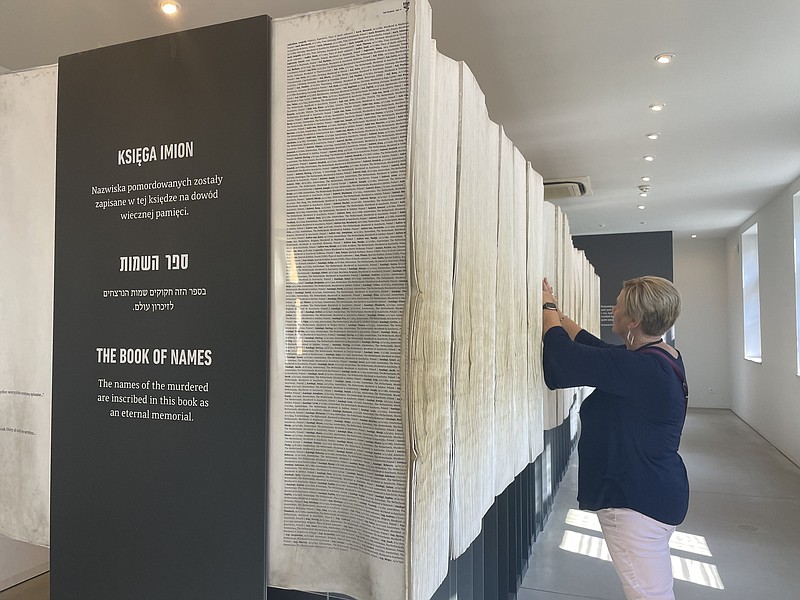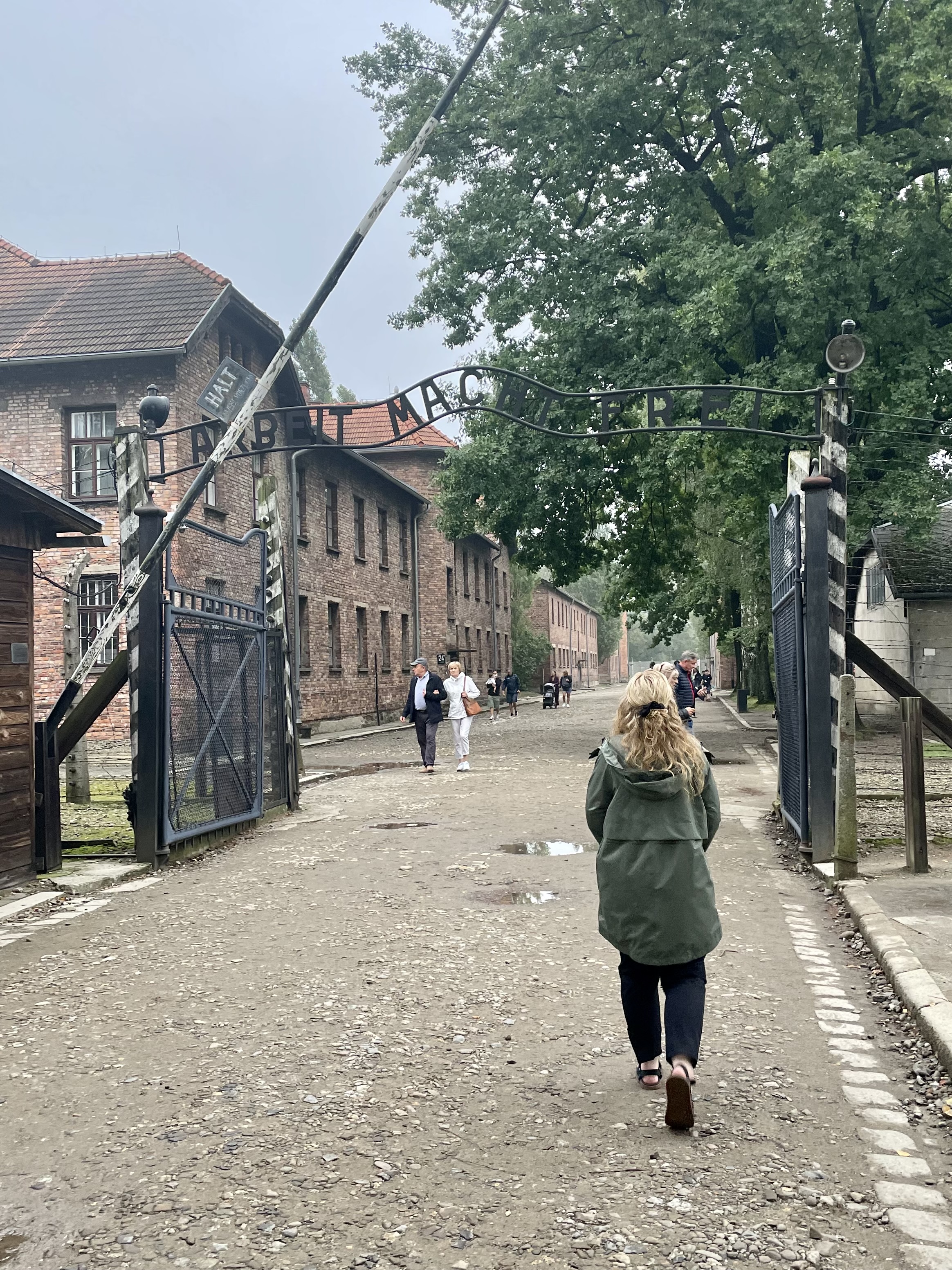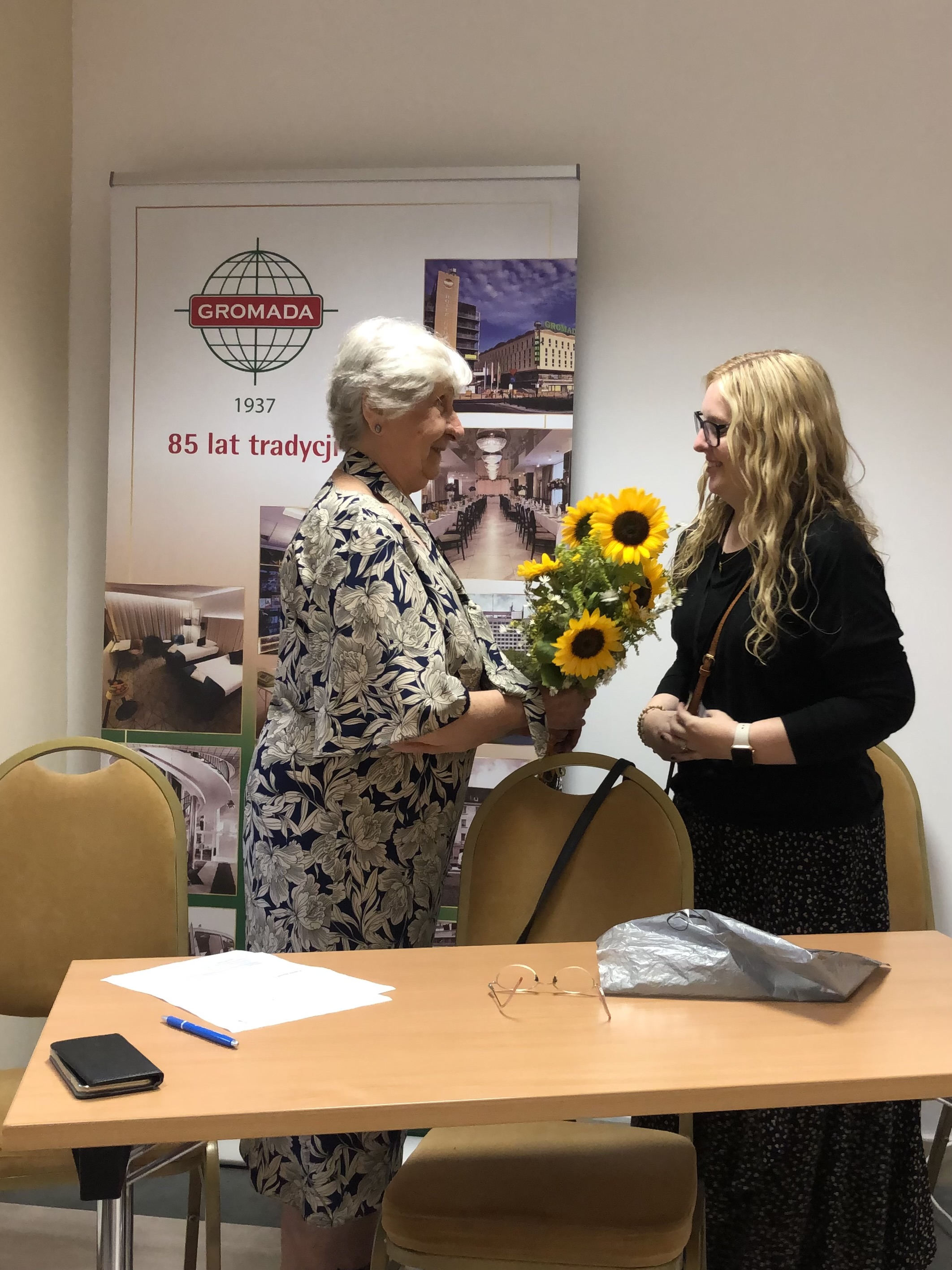Two Helias Catholic teachers recently spent a week in Poland in a program teaching about the Holocaust, the second iteration of an experience that has transformed their teaching on the subject.
Sarah Kempker and Kathy Jarman attended the week-long International Summer Academy sponsored by the Auschwitz-Birkenau Museum to learn more about the Holocaust.
It wasn't their first trip.
Back in 2019, Jarman was scrolling through Twitter when she saw an advertisement for the program. She took a screenshot and sent it to her principal, asking if she and Kempker could attend, though not seriously expecting an affirmative response. To her surprise, the principal said she thought they should. So the two applied together and were accepted.
Jarman and Kempker's students read the book "Night" by Elie Wiesel, around which the English class's Holocaust unit was built.
The unit existed well before they went to Auschwitz, but since they've been, students have been especially interested in asking them questions about what they saw and learned.
"One of the presenters (at the summer academy) said, 'There's really no education without an emotional connection,' and it really made me think about when we came back. It's very hard for me whenever I show (students) a picture of Auschwitz, because for me it was emotional. It felt like sacred ground," Jarman said.
More than 1 million men, women and children died at Auschwitz, according to the museum's website.
Jarman said it's different from seeing a picture on the internet, because she took the photograph.
"And I think when they know someone who's been there it makes it come more alive for them, that it's real," she added.
After they returned from their first trip in 2019, Kempker and Jarman added new components to their Holocaust unit. One was an activity involving a backpack.
When Jewish people were deported to concentration camps, Jarman said, they were allowed to take very little with them.
The teachers prompt their students: "You don't know where you're going, you don't know how long you're going to be there, but you have a very short amount of time to grab things" to fill a backpack.
Students don't yet know the connection to the unit they'll be studying. They often pack items that are fun or practical.
When they start reading "Night," they talk about what they put in their backpacks. When they understand the illustration and are asked what they would change if they could, they often start to think of mementos and sentimental items they wish they could have instead.
After their first trip to Poland, Kempker and Jarman were glad they went, but weren't sure they would ever want to go back. Some of their fellow attendees had been multiple times, but Kempker said the content was so heavy she wasn't sure she'd want to return.
"I didn't understand why they would ever want to come back. It's not a happy place. It doesn't feel good to be there," Kempker said.
But then they were invited back for the 2022 summer academy, this time at "second level" to explore deeper.
They didn't even debate going back, Jarman said. They just checked with their principal and reapplied.
When Kempker and Jarman returned this year, they learned about the Warsaw uprising in addition to Auschwitz.
They were also able to meet an Auschwitz survivor, Janina Iwańska, and hear her story.
She spoke via a translator. While the rest of the week-long program was in English, Kempker had learned a few words and phrases in Polish via Duolingo over the summer.
Kempker was able to present Iwańska with a bouquet of flowers at the end on behalf of the group and say in Polish, "These are for you."
One of the more poignant moments of this year's trip that stands out to Kempker was their time in Treblinka, a Nazi-operated death camp in Northeast Poland. Unlike Auschwitz, very little remains of Treblinka -- it is now a quiet forest marked with rock monuments.
Hundreds of thousands of people were killed at Treblinka, and Jarman and Kempker were shown places where bodies would have been burned.
The group took a moment to gather and discuss what they were learning and feeling at Treblinka.
"We all agreed that it was so peaceful and silent there but also still somehow felt very loud," Kempker said. "Even though we were standing there, not really saying anything, it felt loud."
Their time in the summer academy was physically exhausting -- the teachers were on their feet all day from 8 a.m.-7 p.m.-- but it was even more emotionally draining, Kempker said.
"As tired as we were, it wasn't easy to just fall asleep at night because you had to still kind of process and work through things," Kempker said.
Added Jarman: "People ask me, 'Well, did you enjoy it?' And it's like, well, do you enjoy something that heavy?"
Kempker remembered two men who had previously come to Helias to tell their stories as survivors of the Holocaust. They have since passed away.
One was in Auschwitz, and Kempker said being there felt like a continuation of his story.
Another was in hiding just outside of Treblinka. As she stood at Treblinka, she remembered his account of seeing a column of smoke rising from the place.
Throughout the trip, the phrase was repeated: Never forget.
"Now I feel an extra level of responsibility to keep telling their story and that's the 'Never forget,'" Kempker said.
CORRECTION: This article was edited at 1:02 p.m. Sept. 7, 2022, to restore the accented character originally omitted in the name of Janina Iwańska.



